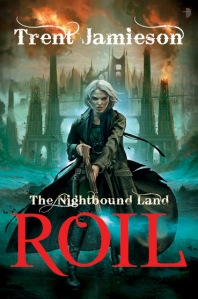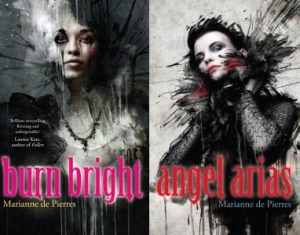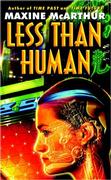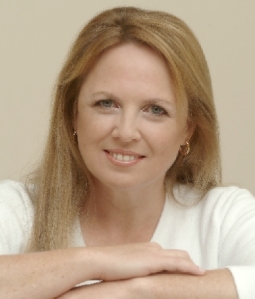I have been running a series of interview with female fantasy writers to redress a perception I came across – that fantasy was a bit of a boy’s club. It really isn’t like that here in Australia. We have many wonderful fantasy writers who just happen to be female.
Today I’m interviewing Sean Williams. He’s a wonderful writer, supportive of the community and a real professional so I thought I’d ask him the same questions I’ve asked the female writers about fantasy writing and gender, to get his perspective as a male fantasy writer.
Watch out for the give-away at the end.
 Q: Sean Williams, I see your second name is Llewellyn. Are you of Welsh extraction? Is there a wonderful story about your people coming out to Australia?
Q: Sean Williams, I see your second name is Llewellyn. Are you of Welsh extraction? Is there a wonderful story about your people coming out to Australia?
My father David was very proud of his distant Welsh background. He came from a long line of Owens and Selwyns and Bronwyns, but apart from his great and sometimes very intrusive love of male voice choirs it didn’t impact on my life terribly much. I’ve only been to Wales once, and that was this year, for one day. I felt more connected to my mother’s father’s German heritage (he was descended from the writer Johann Christoph Friedrich von Schiller) and my father’s mother’s Scottish heritage (I have a tartan tie somewhere). I’m absolutely positive I don’t pronounce “Llewellyn” properly, but at least I know how to spell it.
Q: You have a page on Wookieepedia (the Star Wars Wikipedia). That is so cool. With 6 Star Wars books out now, you must be really comfortable writing in this world, or do you still have to do a lot of homework before starting a new book?
 Every Star Wars novel is different–which sounds a bit pat, but it’s true. In my case, the obvious difference is that I’ve written in three quite different periods of Galactic history: the Old Republic era, three and a half thousand years before the Clone Wars; the dark days when Emperor Palpatine and Darth Vader were in charge, just before Episode IV; and the New Jedi Order era, when Han and Leia have kids who are themselves becoming Jedi Knights. Each period has its own flavour, its own crises and characters, its own rich set of assumptions. Research is essential when it comes to embedding oneself creatively in these worlds. Luckily, it’s research I greatly enjoy. I can get lost in Wookieepedia for days if I’m not careful.
Every Star Wars novel is different–which sounds a bit pat, but it’s true. In my case, the obvious difference is that I’ve written in three quite different periods of Galactic history: the Old Republic era, three and a half thousand years before the Clone Wars; the dark days when Emperor Palpatine and Darth Vader were in charge, just before Episode IV; and the New Jedi Order era, when Han and Leia have kids who are themselves becoming Jedi Knights. Each period has its own flavour, its own crises and characters, its own rich set of assumptions. Research is essential when it comes to embedding oneself creatively in these worlds. Luckily, it’s research I greatly enjoy. I can get lost in Wookieepedia for days if I’m not careful.
(Aside: one of the greatest thrills for me, as both a creator and a Star Wars fan from way back, is to see pages in Wookieepedia relating to elements of canon that I’ve created, be they characters, scenarios, weird aliens or whatever. There are no words for the sense of validation that brings.)
Q: You write for kids and you write for adults. (See TroubleTwisters with Garth Nix).Is there anything you do to get yourself in the right frame of mind when writing for kids? (hang out at the park, think back to your childhood, visit your friends’ kids?)
 Having kids in my life really helps. And being childish at heart helps, too. I’ve written eight books for kids and four for young adults, and I’d have to say that I find the YA mindset much more difficult. I like to write characters who see the world through a fairly rational lens, and of course being a teenager isn’t really about being rational. That’s one of the reasons why it’s such a wonderful, terrifying time, and why it’s such a rich vein to mine, creatively speaking. I’m drawn to doing difficult things–each book is a new challenge–hence my focus on YA in my solo work at the moment.
Having kids in my life really helps. And being childish at heart helps, too. I’ve written eight books for kids and four for young adults, and I’d have to say that I find the YA mindset much more difficult. I like to write characters who see the world through a fairly rational lens, and of course being a teenager isn’t really about being rational. That’s one of the reasons why it’s such a wonderful, terrifying time, and why it’s such a rich vein to mine, creatively speaking. I’m drawn to doing difficult things–each book is a new challenge–hence my focus on YA in my solo work at the moment.
Speaking more generally, I read to get in the right frame of mind. With every project, I’m hunting for a genre or author that will be the right fuel for my own writing. Sometimes it’s the Gothic or 19th Century romances. Sometimes it’s the books I loved as a kid–Weirdstone of Brisingamen or The Dark is Rising, as it was for Troubletwisters. For the next book it could be Tim Powers or Octavia Butler or someone completely know. I never know until I start. But I know when it’s working.
Q: You have a Masters in Arts in Creative Writing. I see you are currently working on your PHD. What’s your research question? Is it something really interesting to do with the craft of writing?
 I’m examining the use of the matter transporter in literature. Sounds pretty dry, doesn’t it? I chose it because my own work has often returned to this trope, from my first complete (and unpublished) short story to my latest novel, Twinmaker, which is so fresh it hasn’t even hit the market yet. It’s a trope that can be used to examine identity and humanity in so many interesting ways–and that, I think, is what science fiction is all about. Crime, too. The Resurrected Man, my second novel, just wallows in these issues, and so does a short story I have coming out in an anthology called Armored next year, “The N-Body Solution”, but in a very different way. I’ll probably keep exploring the trope until I die, or until someone builds a working version so we can explore it in real life.
I’m examining the use of the matter transporter in literature. Sounds pretty dry, doesn’t it? I chose it because my own work has often returned to this trope, from my first complete (and unpublished) short story to my latest novel, Twinmaker, which is so fresh it hasn’t even hit the market yet. It’s a trope that can be used to examine identity and humanity in so many interesting ways–and that, I think, is what science fiction is all about. Crime, too. The Resurrected Man, my second novel, just wallows in these issues, and so does a short story I have coming out in an anthology called Armored next year, “The N-Body Solution”, but in a very different way. I’ll probably keep exploring the trope until I die, or until someone builds a working version so we can explore it in real life.
Q: I see you’ll be at the World Fantasy Convention in San Diego in October. Lucky you! I’ve never been. Can you give us a glimpse of what it’s like?
You should come one day! It’s my favourite con. There are so many great people there, so many friends and writers and new people to get to know–the massed creativity is electric. Whether you go for the panels, the parties or the bar, there’s always someone fascinating to learn from. I go with the intention of hanging out, basically, but always return more energized and better connected than when I left. It’s well worth the effort and expense.
Q: There’s an Australian called Sean Williams on Smashwords. Is that you? Are you planning on releasing some of your backlist as e-books?
 I have no recollection of being on Smashwords, so it’s probably not me. I have two other writer friends also called Sean Williams. One’s a musicologist who writes such wonderful books as The Sound of the Ancestral Ship and The Ethnomusicologist’s Cookbook. The other works in LA. We often talk about collaborating, but can’t agree on which name goes first. Boom-boom.
I have no recollection of being on Smashwords, so it’s probably not me. I have two other writer friends also called Sean Williams. One’s a musicologist who writes such wonderful books as The Sound of the Ancestral Ship and The Ethnomusicologist’s Cookbook. The other works in LA. We often talk about collaborating, but can’t agree on which name goes first. Boom-boom.
I think ebooks are the best thing to happen for readers since, I don’t know, the invention of the mass-market paperback? Public libraries? Whatever, it’s very cool. Some of my back-catalogue is already available through E-Reads and more is coming. I’m still pondering what to do with the rest. The immediate temptation is to start monetizing everything–short stories, novellas, all that–but I’m not sure I admire that impulse very much, so I’m being patient, waiting to see where it all goes. One day I’ll do something with my first novel, Metal Fatigue, which has been hard to get for a long time. What I decide to do with that, and how well it goes, will probably set the precedent for the rest.
Q: On an interview with Angela Slater, when asked what would you be if you weren’t a writer you said: ‘Dead bored”, because that’s what I am when I’m not writing.’ And then you followed it up with, if someone held a gun to your head and said you couldn’t write, you’d go back to your other love, music. (You won a Young Composer Award in High School). I know you make up play-lists for certain books. Are you doing anything with your music at the moment?
 Nothing at all, I’m afraid. It’s a bit depressing. I keep saying that one day I’ll get back to it, but that day just never comes. If I really wanted to, I suppose I would make time, but given the RSI issues I have, the last thing I need is another hobby involving computers . . . .
Nothing at all, I’m afraid. It’s a bit depressing. I keep saying that one day I’ll get back to it, but that day just never comes. If I really wanted to, I suppose I would make time, but given the RSI issues I have, the last thing I need is another hobby involving computers . . . .
Still, I’m always on the look-out for new music (current favourite is Erik Wøllo’s live set Silent Currents), and I’m still DJing occasionally, when people let me. I have the illusion of a relationship with my other lover, and that’s better than nothing.
Q: With over 70 short stories published and 35 novels you must be some kind of writing power-house. I once heard you say that you had to write 9 novels in 2.5 years, so you calculated out how many words a day you had to write and no matter what, you wrote them. At the time I asked you, What if you went wrong? And you said, I couldn’t go wrong. Are you still working yourself to such a hard self-imposed deadline?
 It’s easy to be a powerhouse if you do something all the time and never stop. I don’t think I’m especially creative or anything. Just stubborn, and a bit OCD, and easily bored. Still, RSI has forced me to be more easy-going lately, wordcount-wise. I’m down to about 150k of new fiction a year, which is not a huge amount compared to what I managed in the past, but still pretty reasonable. Of course, not going for quite so much quantity means I can now engage with the quality side of things in a different way. I’m enjoying the time to rewrite more than I normally would. Although that’s still hard on the wrists, harder in some ways, it does demand more time spent pondering what the hell I’ve done and how I can make it better. Normally I’d have to squeeze this process into very short periods, and while I’d never suggest that I approached this kind of thing in a cavalier kind of way in the past–each book received the identical degree of commitment and passion, whether it was Star Wars or a collaboration or something entirely my own–I do sometimes think I could have done more if I’d had more time to do it in. Now I do have the time, I’m making the most of it, and finding new ways to be obsessive.
It’s easy to be a powerhouse if you do something all the time and never stop. I don’t think I’m especially creative or anything. Just stubborn, and a bit OCD, and easily bored. Still, RSI has forced me to be more easy-going lately, wordcount-wise. I’m down to about 150k of new fiction a year, which is not a huge amount compared to what I managed in the past, but still pretty reasonable. Of course, not going for quite so much quantity means I can now engage with the quality side of things in a different way. I’m enjoying the time to rewrite more than I normally would. Although that’s still hard on the wrists, harder in some ways, it does demand more time spent pondering what the hell I’ve done and how I can make it better. Normally I’d have to squeeze this process into very short periods, and while I’d never suggest that I approached this kind of thing in a cavalier kind of way in the past–each book received the identical degree of commitment and passion, whether it was Star Wars or a collaboration or something entirely my own–I do sometimes think I could have done more if I’d had more time to do it in. Now I do have the time, I’m making the most of it, and finding new ways to be obsessive.
Q: As someone who has been shortlisted for and won genre awards, and someone who has taught at Clarion, you really know your writing craft. (Here’s the link to Sean’s list of useful advice for aspiring writers). The industry is changing so rapidly now that things professional writers would never have done (self publish) are now real options. Barry Eisler turned down half a million advance to self publish. Are you scrambling to keep up with the changes?
 The industry has always been a bit of a scramble. I started publishing SF in the dying days of cyberpunk, and then space opera was hot, and then it was YA and zombies or whatever. Who knows what it’ll be next year? Meanwhile, publishers and magazines constantly fold or merge, the internet’s always changing the game, writing software and computers are constantly evolving. And that’s all good. Change keeps us awake. It keeps our eyes open. That’s the trouble with dreaming for a living: if you get too comfortable, you might nod off and miss something interesting
The industry has always been a bit of a scramble. I started publishing SF in the dying days of cyberpunk, and then space opera was hot, and then it was YA and zombies or whatever. Who knows what it’ll be next year? Meanwhile, publishers and magazines constantly fold or merge, the internet’s always changing the game, writing software and computers are constantly evolving. And that’s all good. Change keeps us awake. It keeps our eyes open. That’s the trouble with dreaming for a living: if you get too comfortable, you might nod off and miss something interesting
Q: You’re a member of the RIAUS. (An organisation to bring Science to People). You must feel very strongly about the role of science in the modern world. What do you hope to see this organisation achieve? (Feel free to fiddle with this question, Sean).
I’m enormously proud that we have the Royal Institution of Australia right here in Adelaide. As the only offshoot of the Royal Institution in the world, its aims are at the same time enormously simple and enormously broad. Scientific thinking has changed everything about human society and is in the process of shaping our entire world, for better or for worse, yet so many people still regard as something outside of them, something to be frightened of, to stay away from, to reject. As part of its brief to bring science to people and people to science, RiAUS performs a role very similar to science fiction–that of familiarising the mainstream with what might once have seemed very strange, and to have fun doing it. Hence things like art exhibitions at the Science Exchange, sci-ku contests (haikus based on science), talks on science in pubs, and so on. As someone who has never formally studied science but is immensely interested in it, being involved is a natural fit for me, and I’m proud to have been on their program several times now. If we can expand people’s understanding of the world we live in, in even a small way, I think that’s a win.
Q: Last time we spoke you were the ‘CurryKing’. Are you still into curries? (If you are, the next time you’re in Brisbane, I’ll take you to our fave Indian restaurant).
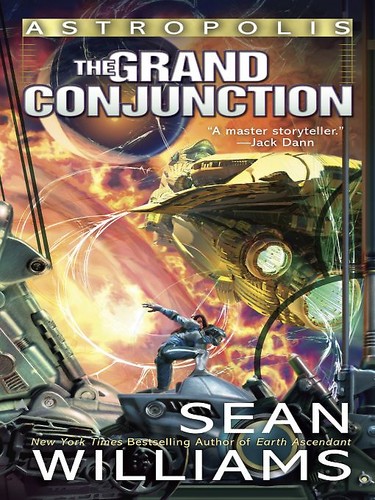 Which one is that? I’ve been to a few up there, now, and they’ve all been delicious!
Which one is that? I’ve been to a few up there, now, and they’ve all been delicious!
I still love curries, although I’ve been a vegetarian for two years now, which has sadly meant no more lamb kormas. My favourite recipe at the moment is for a pumpkin, chick pea and Brussels sprout curry that most people regard with horror. Their loss, I say, and all the more for me.
Q: I was prompted to start this series of interviews because there seems to be a perception in the US and the UK that fantasy is a bit of a boy’s club. Do you think there’s a difference in the way males and females write fantasy?
My gut feeling is that there’s more variation within the sexes than there is between them–that is, the way I write fantasy versus the way Garth Nix writes fantasy, say, might be greater than the differences between me and Sara Douglass–and if that’s the case then bemoaning boy’s vs girl’s clubs is a bit, I don’t know, off-mission for me, much like the talk about genre itself and its impact on what readers want. Some readers and editors undoubtedly have biases towards particular types of writers, but on the whole, I think, we are all genres of one. (I’m avoiding the word “brand” because that might lead us to a whole different conversation.) Every book I pick up is its own experience, and if I like that experience then I’ll pursue the author further. If I don’t, I won’t. So there are fantasy authors I’ve read lots of and others I’ve read almost nothing. Some of both categories are male, some are female. Some I have no idea (for years I thought Julian May was male) and it doesn’t matter. Each writer is different to my eyes not because they’re male or female, Australian or Alaskan, write fantasy or literary fiction, but because they’re different people.
I’m talking about my own perceptions and experiences, of course. I haven’t studied the field in enough depth to have a solid opinion on the subject. If there is a bias, I hope I haven’t contributed to it. All I can do is take hope from reviews like this one, in which Garth and I are praised for achieving “a level of gender-neutrality that is pleasantly surprising coming from two male authors”, and avoid despairing that such a thing should be surprising.
Q: Following on from that, does the gender of the writer change your expectations when you pick up their book?
 I prefer to have no expectations. I’ll avoid reading the blurb and would love it if books had no covers at all (another reason why I love ebooks and the old Gollancz yellowjackets so much). I want to mainline the story in the purest possible form, and while I know that 100% purity is never possible, that I’ll always be lurking in the mix somewhere, I do figure it’s worth aiming for.
I prefer to have no expectations. I’ll avoid reading the blurb and would love it if books had no covers at all (another reason why I love ebooks and the old Gollancz yellowjackets so much). I want to mainline the story in the purest possible form, and while I know that 100% purity is never possible, that I’ll always be lurking in the mix somewhere, I do figure it’s worth aiming for.
I feel this way because I know I know that expectations are unavoidable. Much as I hate it, I do judge a book by its cover. Bad clichéd cover art (from tramp stamps and leather pants to metal phalluses shooting fiery ejaculate) are an utter turn-off, and it can take ages to get past that, even for writers I love, books I’m really enjoying. And I can be kinder, too, to books that don’t deserve it, because I love the way it’s packaged. Mind you, I think that’s not quite so bad a thing, because every book is a sacrifice offered up by someone. Every book is a gift. That should always be celebrated, even if it involves a little delusion at times.
Q: And here’s the fun question. If you could book a trip on a time machine, where and when would you go, and why?
 Much as I’d dearly love to see what really happened on Golgotha, I think I’d have to go forward. No specific date, no specific place. As long as there are ftl spaceships, I’ll be happy.
Much as I’d dearly love to see what really happened on Golgotha, I think I’d have to go forward. No specific date, no specific place. As long as there are ftl spaceships, I’ll be happy.
Sean will give-away one each of MAGIC DIRT,
TROUBLETWISTERS and CENOTAXIS.
Give-away question:
As a long-time Dr Who fan, Sean says, if the Tardis appeared in your
living room and Dr Who stepped out and invited you on an adventure,
which of the Doctors would you like it to be and why?
Catch up with Sean on Facebook.
Catch up with Sean on GoodReads.
For a list of Sean’s numerous publications see here.
For a list of Sean’s opinion pieces see here.











